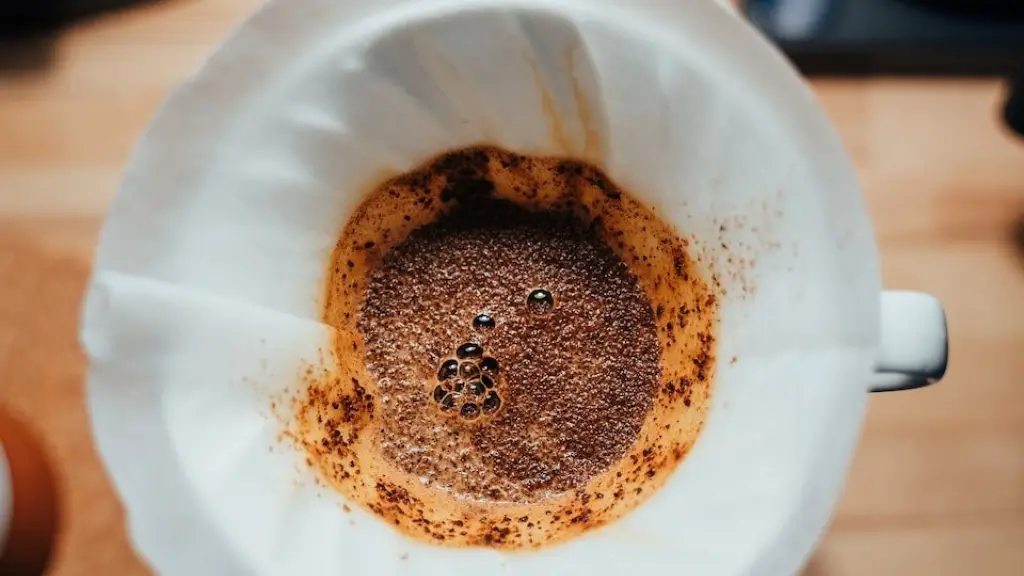Intermittent Fasting (IF) is an increasingly popular dieting trend that involves periods of fasting and eating. During a fasting period, dieters often follow a specific schedule that dictates when they can and cannot consume food. This includes abstaining from eating and drinking anything with calories throughout the fasting period, with the exception of small amounts of black coffee or water. But with that being said, can you drink water or coffee during intermittent fasting?
The short answer is yes, you can drink water or coffee during intermittent fasting. While some opt for plain water to stay hydrated during a fast, others choose unsweetened black coffee for additional health benefits. For example, caffeinated beverages can help boost metabolism, increase energy levels, and improve alertness. Research suggests that black coffee also may help to activate the fat-burning process. Additionally, coffee helps to suppress feelings of hunger since it does not contain any calories.
However, depending on the type of intermittent fasting you follow, beverages other than water and black coffee could break your fast. For instance, Intermittent Fasting 16/8 involves fasting for 16 hours and consuming all meals within an 8-hour window. In this case, dieters may drink coffee and tea with a small amount of cream, almond milk, or a non-caloric sweetener. This helps to boost energy and satiety levels during the fasting period.
Most experts recommend drinking plenty of water during a fasting period. This helps to maintain Hydration, electrolyte balance, and reduce body toxins. Water also can help dieters feel full between meals, allowing them to extend their fasting period. Additionally, like coffee, water may help to boost metabolism and regulate body temperature.
It is also important to note that dieters should drink their beverages slowly. Too quickly, and you may feel bloated or uncomfortable. It is also important to listen to your body’s signals and adjust your fluid intake as necessary.
Additionally, you may want to consider adding other liquids to your intermittent fasting routine. Dieters often drink green tea, Bone Broth, and mineral-rich drinks such as diluted apple cider vinegar or electrolyte beverages throughout the day. Such options are not only nutrient-dense, but they also help to increase the fasting window while providing additional health benefits.
Types of Intermittent Fasting
Intermittent fasting is not a one-size-fits-all approach. Dieters can choose from different methods and adjust their fast according to their needs and goals. Common types of intermittent fasting include.
Time-Restricted Eating- This type of fasting involves a fixed fasting and eating window, usually ranging from 14 to 18 hours. For example, skipping breakfast or having an 8-hour eating window and 16-hour fasting window.
Alternate-Day Fasting- This approach involves alternating between days of eating and days of fasting. For instance, fasting every other day while still following a healthy eating habit.
The 5:2 Diet- This involves 5 days of normal eating and 2 days of fasting. Dieters may fast for the entire day or choose to only limit their caloric intake.
Potential Health Benefits of Intermittent Fasting
Intermittent fasting offers several potential health benefits. These include weight loss, improved insulin sensitivity, increased mental clarity, and improved overall health. Below are some of the most prominent benefits associated with intermittent fasting.
Weight Loss- Research suggests that regular fasting can decrease body weight by helping to reduce hunger and cravings. During a fast, the body shifts from burning carbohydrates to stored body fat, leading to greater fat loss.
Improved Insulin Sensitivity- When done correctly, intermittent fasting can help to improve your body’s sensitivity to insulin. This can lead to greater balance in blood sugar levels, which is beneficial for overall health.
Increased Mental Clarity- Studies show that intermittent fasting can help to enhance mental clarity and focus. When the body is in a fasting state, it is more efficient at burning glucose and fatty acids, which can lead to improved alertness.
Improved Overall Health- In addition to the benefits discussed above, intermittent fasting can help to reduce inflammation, improve heart health, and promote healthier habits. It also can help to reduce stress and boost overall energy levels.
Warnings
Intermittent fasting is generally safe, however, it is not suitable for everyone. Potential risks associated with intermittent fasting include dehydration, slower metabolism, disturbed eating habits, and malnourishment. It also may not be suitable for pregnant or breast-feeding women.
Therefore, it is important to talk to your doctor before starting a fasting plan. If you do decide to fast, it is important to drink plenty of water and keep close tabs on your energy levels. Additionally, it is important to make sure you are still getting enough nutrients from the foods you are eating.
Common Mistakes
Intermittent fasting can be a great way to improve health and lose weight. However, mistakes can lead to health complications and derailed progress. Here are some of the most common mistakes to avoid.
Starting Out Too Extreme- If you are new to intermittent fasting, it is important to start slowly. Do not attempt to fast for an entire day your first time. This can overwhelm your body and cause physical and mental exhaustion.
Breaking the Fast Unnecessarily- Breaking a fast may seem like a good idea and it certainly can be if done correctly. However, it is important to make sure you do not break your fast too often or for unnecessary reasons.
Not Eating Enough Nutrients- Fasting can be a great way to lose weight, however, it is important to make sure you are still getting enough nutrients from the foods you are consuming. During a fast, make sure to focus on healthy, nutrient-dense foods that will provide the most benefits.
Tips and Tricks
Here are some tips and tricks for getting the most out of your intermittent fasting experience.
Pick the Right Method- Depending on your needs and goals, you should pick the right intermittent fasting method. For instance, if you want to lose weight and improve overall health, opting for the 16/8 method may be the better choice.
Listen to Your Body- When fasting, it is important to listen to your body and adjust your routine as necessary. This might mean increasing hydration or adding nutrient-dense snacks between meals.
Be Patient- Weight loss does not happen overnight. Intermittent fasting takes time, so be sure to be patient and realistic with your goals. It also helps to track your progress and successes along the way.
Stay on Schedule- Intermittent fasting works best when dieters stick to a regular schedule. This includes scheduling your meals and fasts in advance. It also helps to introduce fasting gradually and be consistent in your routine.
Alternatives to Intermittent Fasting
Intermittent fasting may not be right for everyone. There are many alternatives to intermittent fasting and many of them include fasting as an aspect. Here are some examples:
The Paleo Diet- This is a dietary plan that consists of eating foods that are similar to what our ancestors ate in the Paleolithic era. This excludes processed foods and focuses on consuming fresh, whole foods and produce.
The Keto Diet- This diet involves limiting carbohydrate intake and increasing fat intake. This helps the body to transition into a state known as ketosis, which is great for weight-loss and health.
Intermittent Feeding- This type of dieting involves fasting but not necessarily for as long of periods as intermittent fasting. This type of diet consists of alternating between eating and fasting throughout the day. Each fasting period only lasts between 1-3 hours.
The 16/8 Diet- Also known as the Lean Gains diet, this method of eating consists of fasting for 16 hours and eating in an 8-hour window. This type of plan may help to reduce body fat and help to improve metabolic health.
Bottom Line
Intermittent fasting is an effective way to improve health and lose weight. While fasting, dieters can drink water or unsweetened black coffee to stay hydrated and energized. When starting out, it is important to start slow and listen to your body. Additionally, it is important to make sure you are getting the nutrients you need from the foods you are eating. Lastly, if YOU are not comfortable with intermittent fasting, there are many alternatives available such as the Paleo Diet and the Keto Diet.





